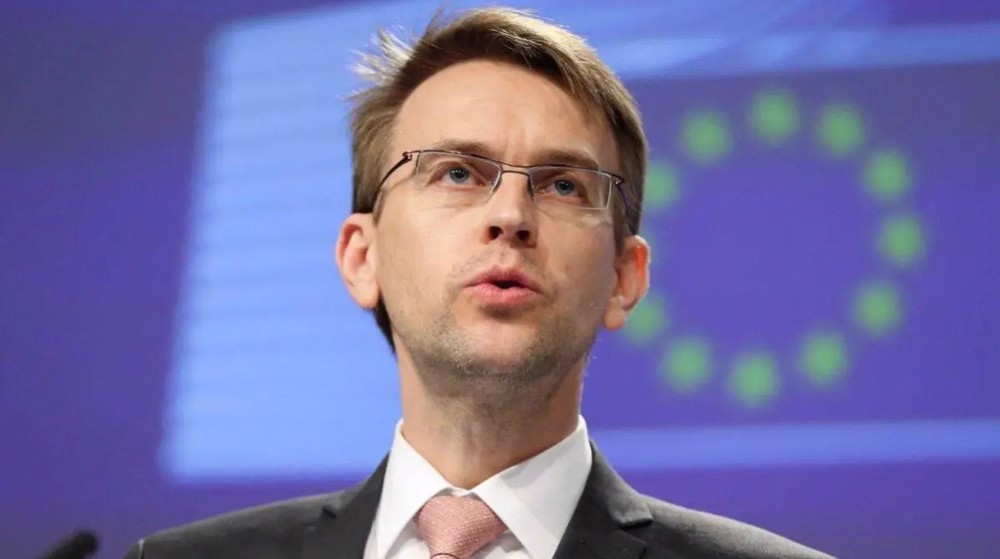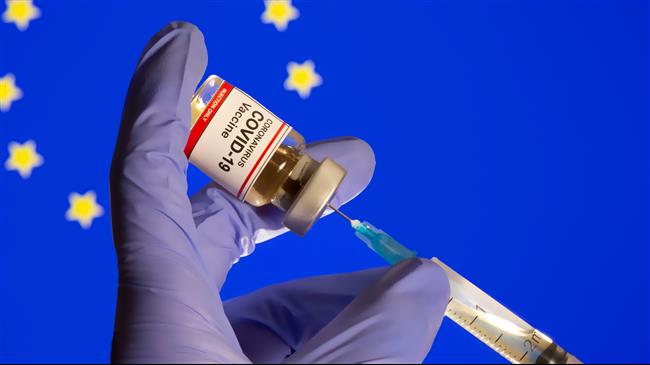Left out by EU, Eastern Europe scrambles for Russian, Chinese vaccines
The EU has come under fire for “neglecting" countries in Eastern Europe in sharing the coronavirus vaccine, which has prompted them to turn to Russia and China to protect their population from the deadly infectious disease.
As the wealthy countries of the bloc snap up the vaccine stocks and are hoarding them, several nations of the Western Balkan region are left out of the EU’s immediate vaccine supply plans.
The EU, which promised to share the vaccine with others, has secured more than 2.3 billion doses of various coronavirus vaccines and has started its own rollout — in a slow pace, though.
Many are now criticizing the EU for not providing the small Balkan region with the vaccine.
Senior policy fellow at the European Council on Foreign Relation, Engjellushe Morina, warned that this feeling of being left behind could have serious implications for the region's security.
"Europe has really neglected the region for such a long time and it makes the region vulnerable to other external actors," said Morina.
“This is where Russia comes in,” she said. “This is where China comes in. This is where Turkey comes in, and they have filled in the void in different aspects."
The executive director of the Albanian Institute for International Studies, Alba Cela, said the fact that the EU didn't do this is "allowing for other actors to play a role.”
"This is a small region in terms of population, which means that with a small investment in vaccines, the EU would have gained a lot in terms of soft power and influence in the region," she said.
Serbia takes matter in own hands
Serbia which is facing the possibility of a long wait for the vaccine doses started purchasing vaccines from China and Russia.
The largest of the six Western Balkan nations said China has so far supplied it with 1.5 million doses of the Sinopharm vaccine.
The country of 7 million has vaccinated around 850,000 people against Covid-19 as of Monday. The bulk of them received the Chinese vaccine.
The government said it has also received 90,000 doses of the Russian Sputnik V vaccine, and 40,950 of the Pfizer/BioNtech vaccine.
Without the Chinese vaccine, Serbia would be in a similar position to the rest of the region, said a senior analyst at ESI, a policy and research institute.
"The entire success of the vaccination program relies on China,” said Adnan Cerimagic.
He said that “the media reports say that thanks to the Chinese vaccine, Serbia is doing better than Germany and many other countries.”
By relying on the Russian Sputnik V and on China’s Sinopharm vaccines, the Balkan country has managed to administer more than 13.5 doses per 100 people.
This is while, the EU’s average of immunization is 5.25 doses per 100 people.
Other Balkan nations, including Kosovo, Montenegro, and Bosnia and Herzegovina are still waiting to receive their first vaccine shipments.
Albania, which has secured 500,000 doses of the Pfizer vaccine via a direct contract with the company, has received less than 10,000 so far, according to the government.
Albania, Montenegro, North Macedonia and Serbia are all officially EU candidate countries.
Serbia donating vaccine to neighbors
Serbia said it donated 4,688 of its Pfizer/BioNTech doses to Northern Macedonia, which is still waiting for any of the more than 100,000 doses it secured.
The government also announced on Wednesday it would donate 4,000 doses of the Russian vaccine to Montenegro, which is also still waiting for its other deliveries.
The government said it would provide vaccines for Serbs living in Kosovo, as well.
It donated some of its doses of the Russian Sputnik V vaccine to the Republika Srpska — one of the two highly autonomous entities that form Bosnia and Herzegovina.
The embrace of Russian and Chinese vaccines in the continent, according to observers, confirms Europe’s view of the EU and Western alliances “as ossified and irrelevant to people’s most pressing needs.”
In a visit to Moscow this month, EU foreign policy chief Josep Borrell praised Russia’s vaccine and expressed the hope that it would be soon available in the European Union.
Russia’s Sputnik V vaccine and China’s Sinopharm and Sinovac vaccines have already begun global rollouts.
In total, 26 countries including Argentina, Hungary, Tunisia and Turkmenistan, have authorized Russia’s vaccine.
Brazil, Indonesia, Thailand and the United Arab Emirates (UAE) are also waiting in line to get China’s vaccine.
China vaccine work on COVID-19 new variants
The vaccine developed by China’s Sinovac Biotech is effective against new variants of the coronavirus that emerged in the United Kingdom and South Africa.
According to the vaccine’s Brazilian partner, test in Chinese trials show “good results,” against the new variants.
Dimas Covas, head of the Butantan biomedical center in Sao Paulo which leads domestic trials of the Chinese vaccine and is supplying doses to Brazil’s Health Ministry, said they are also testing the vaccine against a new variant in Brazil.
A Brazilian variant of the virus appeared in the city of Manaus, he said.
“Soon we will have the results and we are very positive it will do the job,” Covas said.
Covas said he expects CoronaVac to have an advantage over other vaccines due to the technology it uses - an inactivated version of a coronavirus strain.
Brazil has secured 100 million doses of the vaccine and made the vaccine a centerpiece of its inoculation campaign.
VIDEO | Gaza school bloodbath
HTS head vows not to ‘allow Syria to be used for anti-Israeli attacks’
Lebanese activists sued, arrested for condemning television’s pro-Israeli bias
Iran: US, Germany aiding, abetting genocide against Palestinians
More states warn Israel against settlement expansion in occupied Golan Heights
Trump’s ‘maximum pressure’ on Iran won’t work: Analyst
Several Israeli settlers injured after missile launch from Yemen
Ireland: Full accountability for Gaza war, respect for law no 'hostile act'
















 This makes it easy to access the Press TV website
This makes it easy to access the Press TV website